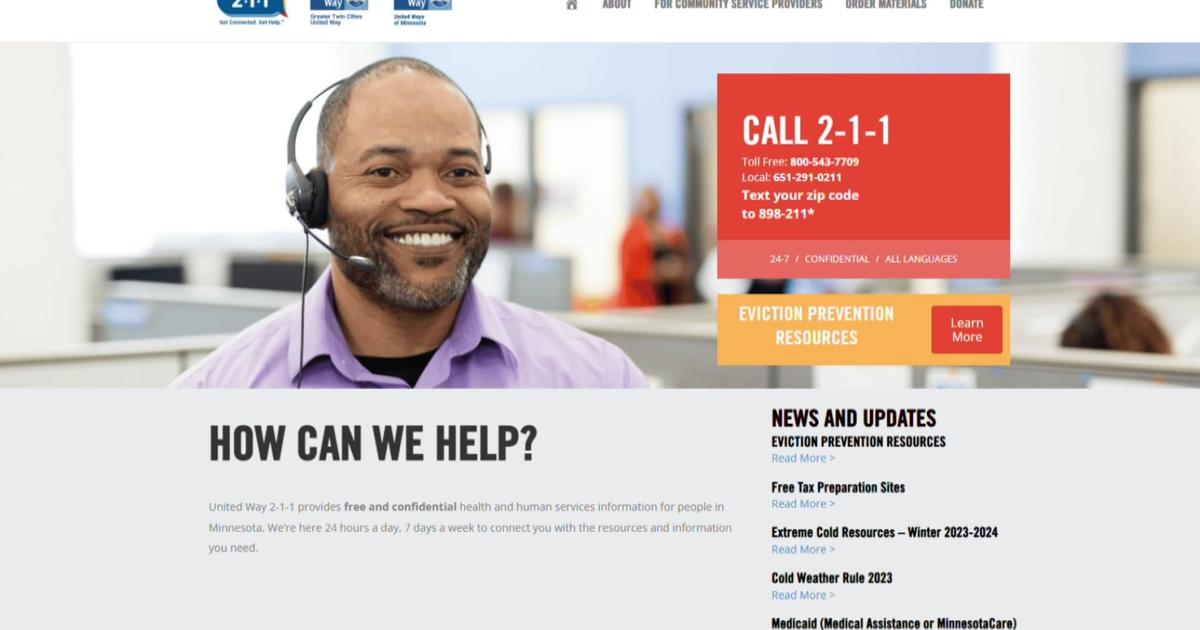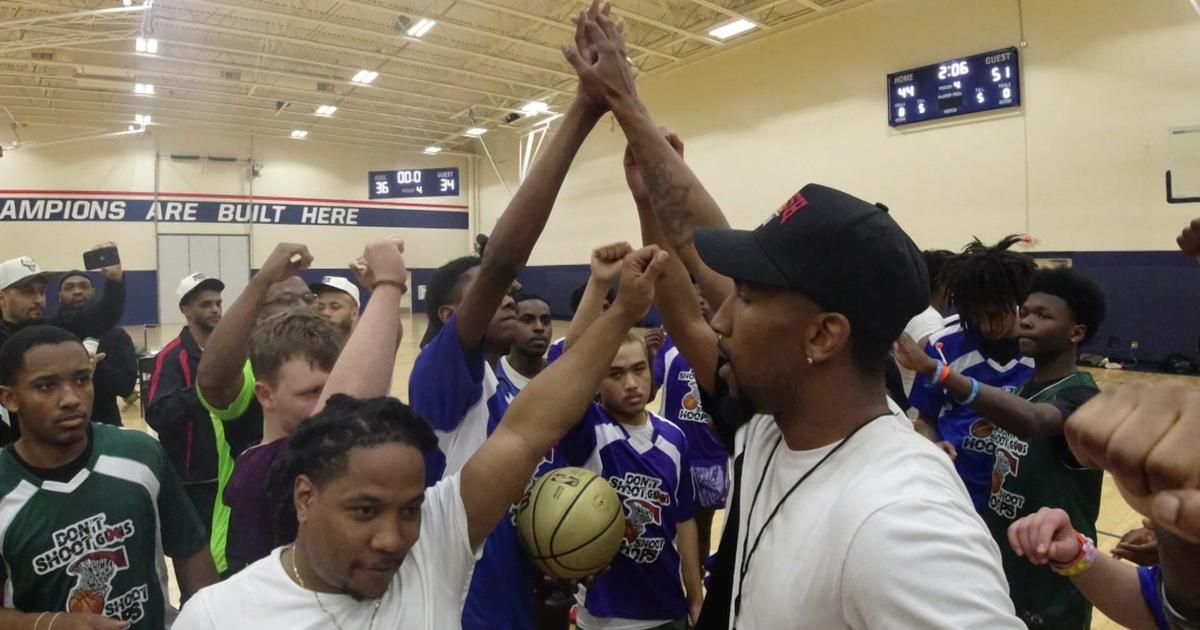Nonprofits Using Community Solar To Help Veterans, Families
ST. PAUL, Minn. (AP) — Minnesota nonprofits are turning to community solar as a tool to fight poverty.
Community solar typically involves households or businesses buying subscriptions to projects owned by a third-party developer. The power generated is credited to subscribers' utility bills and generally reduces monthly payments.
But the model comes with barriers such as credit score checks that can put it out of reach for some of those who have the most to potentially gain. Several Minnesota charities are experimenting with ways to spread the benefits.
___
The nonprofit news outlet Energy News Network provided this article to The Associated Press through a collaboration with Institute for Nonprofit News.
___
A proposed solar project in Duluth is among the latest designed to help disadvantaged communities. A clean energy nonprofit called Ecolibrium3 plans to build and eventually own the 40-kilowatt Lincoln Park Solar Garden and sell the power to benefit a veteran's housing project and an emergency energy fund for families facing utility disconnections.
Ecolibrium3′s community energy program developer Lucas Giese said the nonprofit first considered offering community solar subscriptions to individual families it works with but opted instead for a different model.
"This has the potential to reach many more people in a time of crisis and spread renewable energy across a wider swatch of the city," Giese said.
Rural Renewable Energy Alliance uses federal low-income heating assistance funds and other sources to build solar installations for tribes and community action organizations, who then take ownership of the projects.
In the Twin Cities, Cooperative Energy Futures sells subscriptions without income limits or credit score requirements, removing a major barrier to low-income access to community solar. Most projects require a good credit score and income before granting subscriptions to customers.
The organizations are helping to reinvent community solar as they seek to stabilize energy prices for low-income households while meeting missions of helping with Minnesota's transition to clean, locally produced energy.
Minnesota boasts the nation's largest community solar program. Managed by Xcel Energy, the program has more than 500 megawatts of community solar projects and upwards of 12,000 subscribers.
Yet most of those subscribers are businesses, nonprofits and individual consumers. Left out the landscape, at least in the initial years, have been low-income households that, because they pay a bigger share of their income for energy, are most likely to benefit from the program.
Community solar contracts offer price reductions on electricity that grow over the years at the same time those costs are generally increasing for all consumers. A community solar contract can work as a hedge against pricing swings.
To reach more disadvantaged households, clean energy organizations have created different approaches to serving low-income residents.
More projects might emerge if not for the barriers, from financing and regulatory issues to the necessary complexity of deals and willing utility partners. Community solar — rather than rooftop solar — appears an attractive approach for social service, weatherization and nonprofit agencies.
"The advantage (of community solar) is you often see that low-income customers don't own their own homes, their roofs would require major reinforcements to have panels, and the projects can be expensive," said Tina Koecher, manager of customer experience for Minnesota Power. "Low-income customers often move a lot and so if they put it on a home and they move, they no longer receive a benefit."
The economies of scale offer larger installations that can help more people, she said, and when nonprofit agencies can own paperwork, marketing and management issues decline. Minnesota Power is helping finance projects that will be likely be owned by Ecolibrium3 and a Little Falls nonprofit after they are completed.
Community solar gardens aren't going to solve the larger problem of the energy burden poor households face in Minnesota or the country. The federal government's Low-Income Home Energy Assistance Program reaches more than 125,000 Minnesotans and weatherization programs help retrofit as many as 2,000 homes annually.
Only 1 in 4 eligible families in Minnesota receive any assistance, state data reveals. The community solar program, despite its size, would have to be a lot larger to make a more significant dent in the energy burden of low-income residents. Yet Koecher and others who work with developers applaud the level of innovation in the field and the commitment of nonprofits to build solar benefiting low-income communities.
Ecolibrium3′s plan assists families facing utility disconnection and a transitional housing project called Duluth Veterans Place, managed by the Minnesota Assistance Council for Veterans. Lincoln Park was selected because of a history of "40 years of disinvestment," a concentration of poverty and a prominent location, Giese said.
The site had an added attraction of being a highly visible site alongside Interstate 35 between Lincoln Park and Duluth's downtown in view of 50,000 drivers a day. A community event sponsored by Ecolibrium3 drew suggestions of using the solar garden for public art, gardens, pollinator habitats, outdoor art galleries and a Hollywood-style sign saying "Duluth."
Giese said: "It's about producing power from the panels but it's also an entrance to Duluth. We saw this as a chance to bring the community together around the solar garden."
Funding from Minnesota Power's SolarSense program will help pay for the Lincoln Park initiative. In return the utility receives the renewable energy credits the project generates and will use them to help fulfill Minnesota's solar energy standard, Koecher said.
"The other benefit is we have a number of low-income customers in our territory so anything that can help them to relieve their energy burden is a good thing," she said. "And we have a long history of collaborating with Ecolibrium3 on a variety of projects. We love that these ideas are brought to the table."
Little Falls-based Tri-County Community Action Partnership, another Minnesota Power customer, is having the Rural Renewable Energy Alliance, or RREAL, build a 22-kilowatt array on its property in Little Falls focused on reducing the energy bills of disabled veterans. The power generated by the community solar project will be assigned to homes of 12 to 15 disabled vets who have either had or will have their homes weatherized. Once completed the agency will own the solar garden.
Mike Becker, the agency's weatherization and housing program director, said he looked first at spreading the cost savings among more households but decided to select fewer clients to make a larger dent in electricity bills. Those clients will have had their homes weatherized or be on a shortlist to have it done. Weatherization combined with community solar should drive down the costs significantly.
"We wanted the amount of money saved to be significant, not just something like $10 a month," he said. "If we apply it to some of these smaller houses it might be cutting their electric bill in half, or a third. This is more bang for the customer."
Jason Edens, RREAL's executive director, said the Tri-County Community Action Partnership is a good example of the kind of project his nonprofit wants to do more of in the future. His concept includes building community solar installations for nonprofit agency partners and then transferring ownership to them.
RREAL once largely installed rooftop solar on low-income households that had been weatherized, he said. It continues to provide that service but added community solar a few years ago to broaden the number of households a project could reach. Edens created "Community Solar For Community Action" to reach a wider market around the country with a model leveraging federal Low-Income Home Energy Assistance Program money to pay for solar arrays.
The Tri-County Community Action Partnership, a Native American tribe in Minnesota, and a Vermont nonprofit are among RREAL's first clients. The program moves low-income households away from fossil-fuel based power by providing locally produced energy, he said. The low-income energy assistance program's budget has been declining the past few years and funding often comes in after the beginning of the heating season.
Community solar in his home territory offers community action groups to "generate and deliver Minnesota-produced energy in a way that is much more fiscally responsible and insulates energy assistance service providers from fickle federal funding," Edens said.
Mankato-based Partners For Affordable Housing purchased 17 subscriptions earlier this year from the Just Solar Coalition, an organization developed by Minnesota Interfaith Power & Light. Focused on housing people who have experienced homelessness, the Partners For Affordable Housing was looking for ways to hedge energy costs for the low-income households it serves.
The Just Solar Coalition sells subscriptions to Cooperative Energy Futures, which develops community gardens for a wide range of income levels. The coalition's subscriptions do not ask clients for income or credit scores, a common requirement of community solar gardens.
Partners For Affordable Housing Executive Director Jen Theneman said the subscriptions will be assigned to homes and apartments owned by the agency. The idea is that the subscriptions will keep down costs of heating and cooling common spaces, Theneman said, saving more than $100,000 over the next 25 years. "The overall cost savings to our organization is going to be significant," she said. "For us it was really a no-brainer."
Cooperative Energy Futures reports one other nonprofit signed up for multiple subscriptions and will pay for them on behalf of tenants. The Just Solar Coalition and the developer say it may become a more popular way to deliver savings to disadvantaged households in the future.
(© Copyright 2019 The Associated Press. All Rights Reserved. This material may not be published, broadcast, rewritten or redistributed.)



